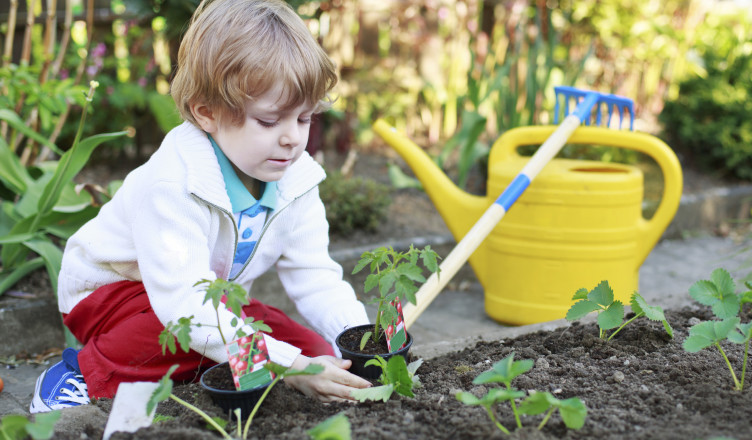Everyone has something to learn from gardening. Children can pick up all sorts of new skills – planning, nurturing and responsibility to name a few. Adults can enjoy reconnecting with nature and feeling good about having grown their own food. But what’s most important about gardening is that it has a special way of making a family feel so much more connected. Here’s why gardening with your foster child is one of the best ways to make her feel like she’s a member of the family.
Gardening with your foster child: It takes time
When a foster child enters a new placement, it takes time for her to become accustomed to her new surroundings. Filling your foster child’s day with fruitful activities like gardening is a surefire way to cut down the time it takes for her to realize that you have her best interest in mind and that your home is a place where she can always feel comfortable.
Gardening with your foster child: Making food reliable
Many foster children come from homes where dinner may not have been a sure thing and going to bed hungry was an all-too frequent occurrence. Gardening with your foster child can help bridge the gap between an empty stomach and a full one because the bottom line of the endeavor is creating food. Growing and sharing food helps your foster child avoid the stress of not knowing when her next meal is coming. A garden sends a whole bunch of comforting messages – food is on its way! Food is an integral part of this home! This household values sharing!
Anthony Antonucci of H.E.A.L.T.H. for Youths, a Manhattan-based nonprofit, takes this a step further. “Sometimes at-risk children and youths feel like they have nothing to give – that they can only take from their communities. And a lot of people outside those communities believe that too. But gardening shows us the truth: that these children have value, that they have skills, which can be used to enrich people’s lives.”
Imagine feeling like you are dependent on others for everything in your life – then suddenly finding out that not only do you have enough to take care of yourself, you can provide for your neighbors, family and friends too! Now you’re seeing the impact gardening with your foster child can really have.
Gardening with your foster child: Becoming a member of the family
As a foster parent you are tasked with doing your best to make your foster children feel at home. Gardening with your foster child is a practical and enjoyable way to make that happen. By allowing your foster child to be creative with her choices of what veggies to plant or how to incorporate the food you grow into a meal, you are allowing her to feel that she is a valuable and contributing member of a family unit – just the feeling every foster child needs and wants.
Besides sharing the time it takes to grow your food and the food itself, in gardening with your foster child you’re sharing an experience that will last a lifetime. Whether your foster child becomes a permanent member of your home or moves on to another placement, she’ll always remember the good times you shared in the garden.

